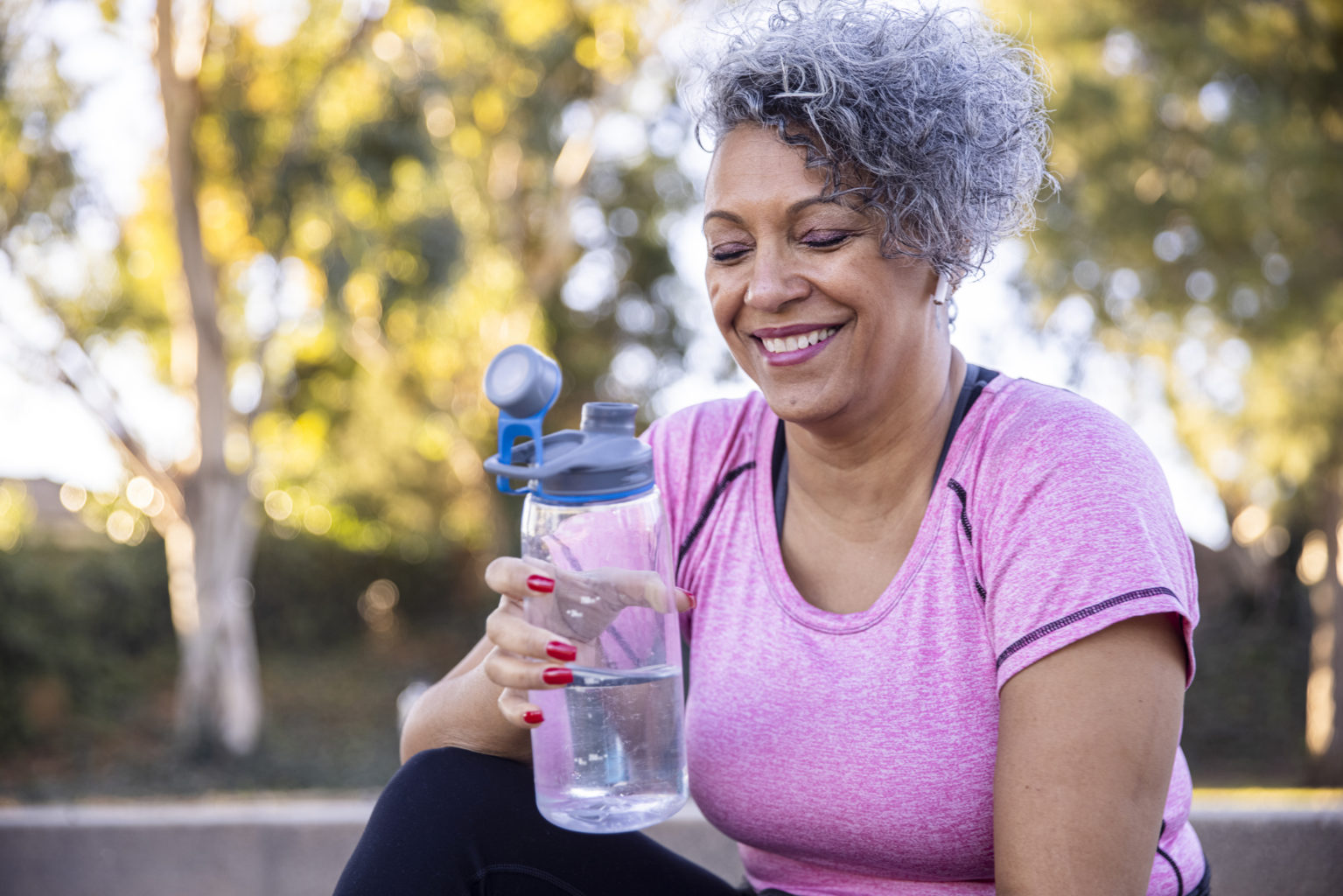Eight Questions About Seniors and Dehydration

This summer, much of the country has been suffering under the blistering heat. High temperatures are especially dangerous for older adults, and dehydration is one of the big factors when they experience heat-related illness.
Yet even during cooler times of the year, older adults are at risk of having a less than optimal level of fluid in their bodies. Dehydration can cause heart problems, low blood pressure, digestive disorders, confusion, and heat-related illness. It raises the risk of infections, especially of the urinary tract. It makes seniors more likely to sustain a fall injury. A study from the American Physiological Society even shows that while exercise gives us a memory boost, we don’t reap those benefits if we’re dehydrated.
Why are older adults at higher risk of dehydration? PET scans show that a region of the brain called the mid-cingulate cortex, which tells our bodies that we need water, often malfunctions in older adults. Older brains might not only fail to send signals that we need to drink but might even in effect say “OK, that’s enough” even if we’ve only taken a few sips.
Other factors compound the problem. Health challenges, including Parkinson’s disease, dementia, the effect of a stroke, and arthritis, can make it harder for a senior to stay well-hydrated. Certain medications, such as laxatives or those to treat congestive heart failure and high blood pressure, cause our bodies to excrete more fluid. Infections and fevers can dehydrate us. Some people with incontinence choose to refrain from drinking fluids, especially at night. And a person’s doctor might recommend restricting fluids if they have certain health conditions, such as heart failure or kidney disease.
Be alert for the signs of dehydration, which include extreme thirst, dry mouth, headache, lethargy, and hallucinations. It can be harder to recognize dehydration in seniors because they may not feel thirsty, and some of the symptoms of dehydration can be confused with other common conditions.
Here are eight common questions older adults have about proper hydration:
- How much fluid should I drink each day? This varies from person to person, depending in part on their height, weight, activity level, and health conditions. For most people, around 64 ounces a day (eight glasses) is recommended. Ask your doctor about how much fluid you should be consuming.
- What should I drink? Water is the very best choice! Because of their reduced thirst mechanism, seniors should drink before they feel parched. Get in the habit of sipping small amounts throughout the day. Keep a water bottle full and nearby. Add a slice of citrus fruit, cucumbers, or strawberries—appealing to look at, and delicious to sip.
- What other fluids are good? Water is the very best way to hydrate, but there are other good sources of fluid, such as milk or non-dairy alternatives, 100% fruit juices, soup, veggies, and fruits. Watermelon, for example, is well-named, containing more than 90% water.
- Is soda a good choice? Only in small amounts. Sugary drinks are linked with an increased risk of heart disease, obesity, and diabetes. A recent study from the University of Michigan even showed that consuming a lot of sugary beverages is associated with chronic liver disease.
- What about sparkling waters? These can be an acceptable and tasty alternative, but read the label first—some have added sodium or sugar.
- What about coffee and tea? These can have a mild diuretic effect, increasing our output of urine, but experts reassure us that we’ll still gain more liquid than we lose, so unless your doctor tells you otherwise, enjoy. Use sugar sparingly—and remember that those fancy sugary coffee drinks and even some tea concoctions are more of a dessert than a beverage.
- What about alcoholic beverages? Beer, wine, and spirits may seem to quench our thirst, but in fact, alcohol has enough of a diuretic effect that it can dehydrate the body. Don’t drink more than your doctor advises, and have some water shortly before and after drinking alcohol.
- What if I’ve been advised to limit fluids? People with heart failure and certain other conditions may be advised to limit their fluid intake and may take medications that cause the body to get rid of extra fluid. Have regular checkups and follow your doctor’s recommendations carefully.
The information in this article is not intended to replace the advice of your healthcare provider. Talk to your doctor about the ideal fluid consumption for you.
Source: IlluminAge AgeWise
![Health Concepts [logo]](https://healthconceptsltd.com/wp-content/themes/healthconcepts-corporate/images/logo.png)
